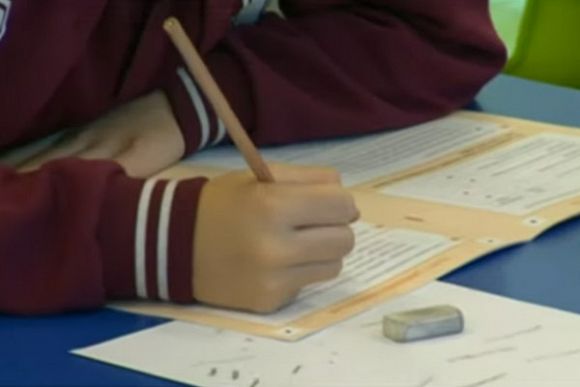Inequality in the Australian educational system has placed our nation far behind most countries while the Government ignores the situation, writes A L Jones.
EVER SINCE Gough Whitlam’s education revolution bit the dust in 1975, how much blood, sweat and tears have we shed telling governments ad nauseum how to make education equitable? After many reports and inquiries, how do things stand in Australian schools?
An article in The Conversation states:
‘Australian schooling is one of the most inequitable in the world and disadvantaged Australian students are up to three years behind the most-advantaged students.’
Of 38 developed countries, Australia ranks 30th on educational equality. That inequality is growing: ‘Those at the bottom are falling faster than those at the top.’
Large gaps in development are evident from school entry. These gaps are unusually wide in Australia and the further through school, the wider the gaps. Students who need support to catch up do not receive it.
One in four seventh-graders does not have the literacy and numeracy skills they need. More than one in four 15-year-olds are behind in mathematics, reading and science. More than one in four 24-year-olds have not mastered the skills to become confident in themselves and their future and nearly two out of five are not actively engaged in the community.
Do we really believe our governing class cares to fix anything more than the minimum required to get them over the line again?
Reports usually end: “...if the political will is there”. It’s not there, so what next?
First, understand the mindset of those who don’t want equal educational opportunity — broadly, the male conservative class. It thinks it’s born to rule and its very own private school system ensures it.
The mindset is 19th Century in nature, 21st Century in spin.
The 19th Century idea is that inequality is how things are and how things should be. It has huge gaps, but rusted-on conservatives don’t care.
Why not? Because here in the 21st Century, it still makes them feel relaxed and comfortable. Where they stand (middling to upperish) on the great God-given ladder is not so badly off.
Maybe they know they don’t meet the grade of “fittest”. But “survival” is the key word, not “fittest”.
The lower classes have an important job — namely, to keep up the fragile egos of the fathers who know best.
Incidentally, that’s also why the straight ones keep chasing young women — what better way to boost flagging whatsits?
Second, we need to stop pretending ad nauseum that our leaders have the political will for anything but getting over the line. Stop pretending they don’t already know how to reduce inequality. Stop pretending they want what we want: an actual social fabric, relative equality of opportunity and solidarity with those less fortunate.
With those things, we the people might be less fearful, gullible and manipulable. We might stick together better in the face of bigotry, discrimination and lies.
What leader wants that, even the ones that aren’t sociopaths but simply scared? Scared of discomfort, loss of perks or pensions, loss of “likes”. And any number of nameless fears called Murdoch.
“Just show them the data; they can’t ignore this.” We, the interminable optimists need to learn that mindless optimism isn’t the go.
Mindful optimism, on the other hand, says: “Hope for the best, but prepare for the worst.” Preparing for the worst means knowing that hope and words aren’t enough.
Our leaders know how to make education equitable, they just don’t want to. It is not in their main interest — namely, getting over the line.
What’s required to get over the line? Nothing more than Facebook and some canny lies such as death tax to scare the swingers off the opposition.
What the governing class wants is for enough of us to believe its lies. Enough to get it over the line.
And what might equitable schooling do? It might see more of the working class getting into university. It might see some of them becoming teachers. It might see some of them teaching children to see through spin. And soon we’d be back in the 1970s, back to the Gough era.
It's oversimplified, but gets the point across.
How do we get leaders to do something they deem not in their short-term interests? Not through words alone. We need our feet to do that.
Of course, we need to keep talking, but we must also stop pretending.
We can’t move governments by collecting more data and writing more reports. Pretending that we can is like feeding Richard Dawkins to Scotty in the hope he’ll forsake God.
Not a prayer.
A L Jones is a psychologist and author of several published books and numerous articles on gender politics.
Related Articles
- Educational inequality: Job guarantee would close the divide
- School curriculum review leaves value of education in question
- University funding suffers from political interference
- Why Victorian teachers strike tomorrow
- Students need school counsellors, not disciple makers
 This work is licensed under a Creative Commons Attribution-NonCommercial-NoDerivs 3.0 Australia License
This work is licensed under a Creative Commons Attribution-NonCommercial-NoDerivs 3.0 Australia License
Support independent journalism Subscribe to IA.















